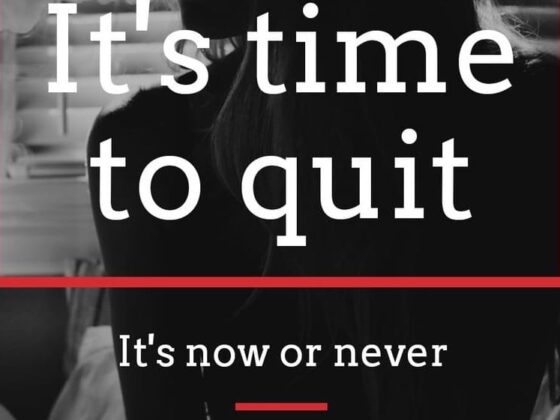Hey there, you brave soul who’s decided it’s time to kick the smoking habit. We know it’s not an easy journey, but guess what? You’ve already taken the first and most crucial step – making the decision to quit. Now, it’s all about finding the right strategies and support to make that decision a reality. So, let’s dive into the world of proven strategies that will help you quit smoking for good. This blog is your roadmap to a healthier, smoke-free you!
Why Quit Smoking?
Before we delve into the strategies, let’s remind ourselves why quitting smoking is a monumental step:
- Healthier Life: Smoking is a direct ticket to a host of health problems – heart disease, cancer, lung issues, and more. Quitting significantly lowers your risk of these conditions.
- Longer Life: Smoking shortens your life. By quitting, you’re essentially adding more years to your journey, ensuring you’re around to enjoy the milestones and experiences life has to offer.
- More Money: Smoking is like burning your hard-earned money. Quitting means you’ll have extra cash to spend on things that matter to you.
- Improved Well-Being: Your overall well-being improves when you quit. You’ll breathe easier, sleep better, and feel more energetic.
- Protecting Loved Ones: Secondhand smoke can harm the health of those around you. By quitting, you’re creating a healthier environment for your family and friends.


The Power of Nicotine Addiction
Nicotine is the addictive element in cigarettes. It’s what keeps you coming back for more, even when you want to quit. Understanding nicotine addiction is crucial as it helps you comprehend why quitting is so challenging and why you need solid strategies to overcome it.
Nicotine addiction is twofold:
Physical Addiction: This is the body’s dependence on nicotine. When you don’t smoke, you experience withdrawal symptoms like irritability, restlessness, and cravings.
Psychological Addiction: This is the emotional and mental aspect of smoking. It’s the association you have with cigarettes – lighting up after a meal, during a break, or in social situations.
Proven Strategies to Quit Smoking for Good
Ready to embark on your smoke-free journey? These proven strategies will be your companions throughout the process.
- Set a Quit Date:
Choosing a specific date to quit smoking can make the process feel more achievable. It’s like having a destination on a map; you know where you’re headed.
- Identify Triggers:
What makes you reach for a cigarette? Stress, boredom, or social situations? Identifying your triggers is the first step in overcoming them. With this knowledge, you can develop strategies to cope with these triggers in healthier ways.
- Nicotine Replacement Therapy:
Nicotine replacement therapies can be valuable tools in your quit-smoking journey. These include nicotine patches, gum, lozenges, and inhalers. They help reduce withdrawal symptoms while you work on quitting.
- Medications:
Consult your healthcare provider about prescription medications that can curb nicotine cravings and withdrawal symptoms. These medications can be a game-changer in your journey to quit smoking.
- Counselling and Support Groups:
Joining counselling sessions or support groups can provide you with valuable emotional support and effective strategies for quitting. It’s like having a network of cheerleaders who understand what you’re going through.
- Stay Active:
Exercise isn’t just good for your health; it’s also an excellent way to reduce cravings and improve your mood. Engaging in regular physical activity can be your trusty sidekick in this journey, helping you manage stress and maintain your motivation.
- Avoid Smoking Triggers:
Stay away from situations or people that encourage smoking. Surround yourself with a supportive, smoke-free environment. It’s like having a fortress of protection against temptation.
- Practice Mindfulness:
Mindfulness and relaxation techniques can help you manage stress and cravings during the quitting process. It’s like having a secret weapon to conquer those moments of weakness and maintain your focus on your goal.
- Reward Yourself:
Set up a reward system for reaching milestones in your quit-smoking journey. Treat yourself to something enjoyable as an incentive for your achievements. You deserve to celebrate your progress.
- Stay Committed:
Quitting smoking might not be easy, but it’s entirely worth the effort. Stay committed to your goal, and remember your powerful reasons for saying no to smoking. You’re not alone in this journey – you’ve got a whole community of supporters cheering you on. Your commitment and determination are your strongest allies.
- Avoid Alcohol and Coffee:
For some, alcohol and coffee are associated with smoking. During your quit-smoking journey, consider avoiding or minimizing these triggers, as they can tempt you to smoke.
- Write Down Your Reasons:
List down all the reasons you want to quit smoking. When the going gets tough, referring to this list can reignite your motivation.
- Change Your Routine:
Modify your daily routine to avoid situations where you used to smoke. Whether it’s taking a different route to work or finding new activities to replace smoke breaks, change can be your ally.
- Be Patient with Yourself:
Quitting smoking isn’t always a linear journey. There might be slip-ups, and that’s okay. What’s essential is that you continue to move forward and not get discouraged by setbacks.
- Visualize Your Success:
Take a moment each day to visualize yourself as a non-smoker – healthier, happier, and free from the shackles of smoking. This mental image can reinforce your determination.
- Stay Hydrated:
Drinking water can help flush nicotine out of your system and reduce cravings. Carry a water bottle with you to remind yourself to stay hydrated.
- Avoid Negative Influences:
Surround yourself with people who support your decision to quit smoking. Avoid or limit contact with individuals who may encourage you to smoke.
- Develop New Hobbies:
Engage in activities that keep your hands and mind occupied. Whether it’s a new hobby or an old one you’ve always enjoyed, having something else to focus on can help reduce cravings.
- Keep a Quit-Smoking Diary:
Document your journey – your thoughts, feelings, and cravings. This diary can serve as a visual representation of your progress and help you understand your triggers better.
- Seek Professional Help:
If you find that quitting on your own is challenging, don’t hesitate to seek professional help. A healthcare provider or smoking cessation counsellor can offer personalized advice and support.
- Remember Your “Why”:
Whenever you feel like giving in to a cigarette, remember your reasons for wanting to quit. Whether it’s for your health, loved ones, or personal well-being, these reasons can be your guiding light.


In Conclusion
Quitting smoking isn’t a one-size-fits-all journey. It’s about finding the strategies and support that work best for you. Remember, even if it’s challenging, it’s entirely possible. Many before you have succeeded in this quest, and you can too. Every day without a cigarette is a victory, and each small step brings you closer to your goal. So, take a deep breath, stay determined, and embrace the journey towards a healthier, smoke-free you. You’ve got this!
Love,
Team LadyInRoseGold



















